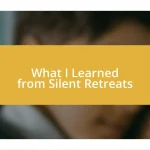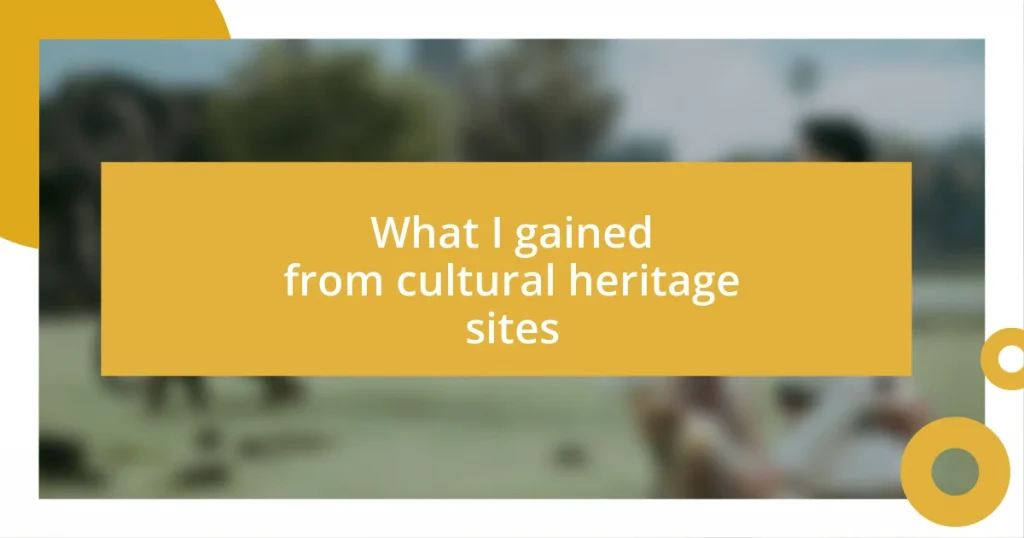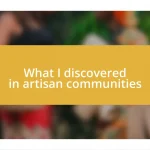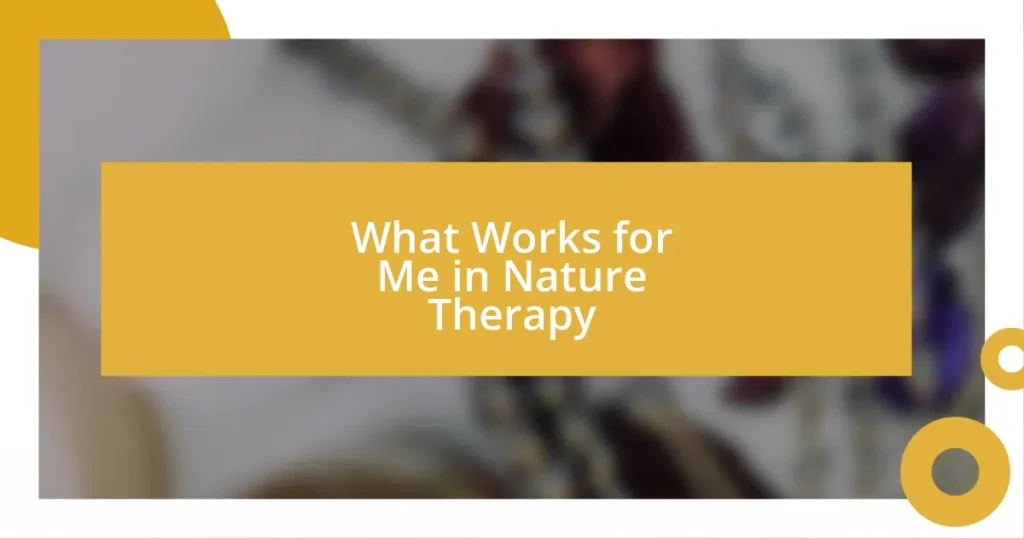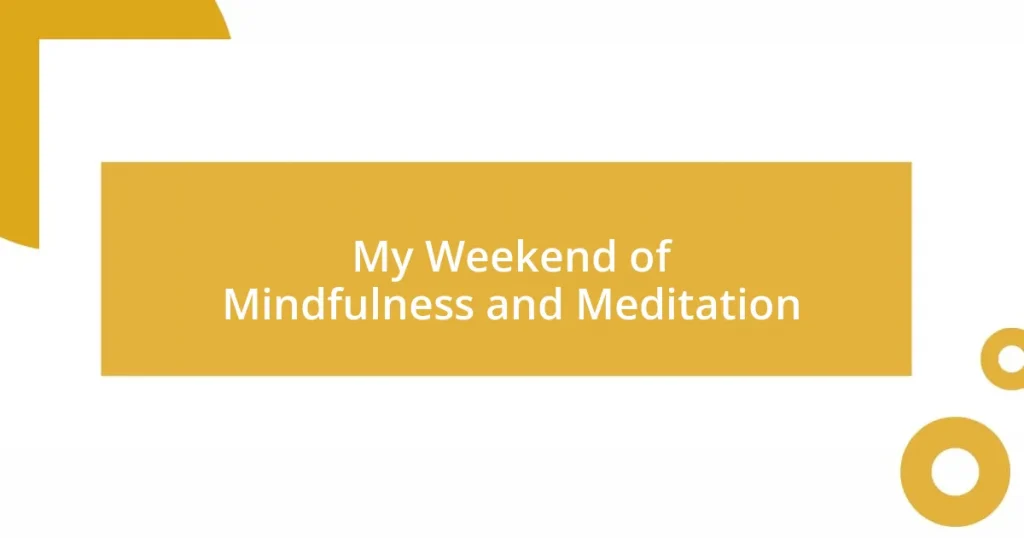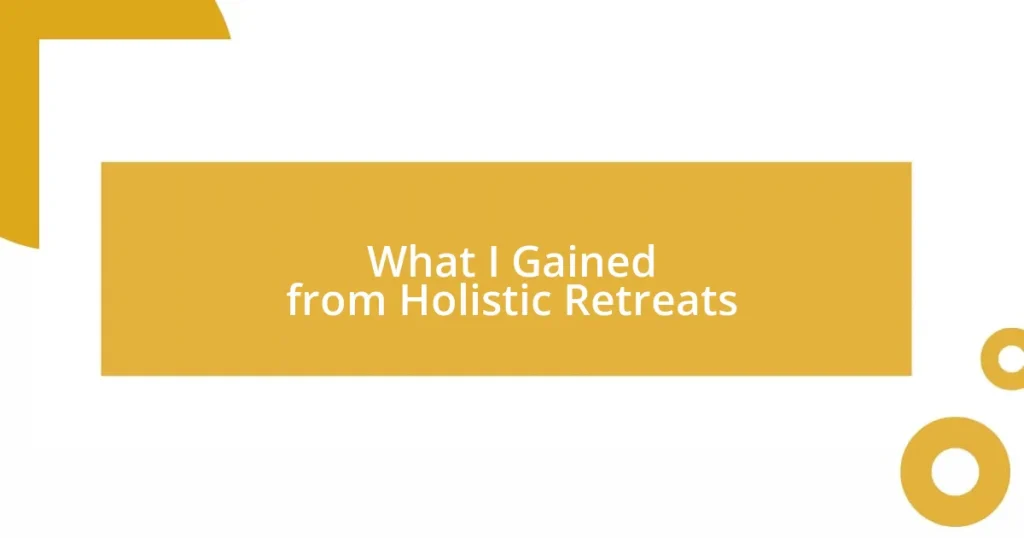Key takeaways:
- Cultural heritage sites serve as vital connections to our past, enriching personal identities and fostering emotional ties through shared narratives and experiences.
- Preserving these sites is essential for maintaining cultural identity, providing educational resources, and promoting economic sustainability through tourism.
- The future of cultural heritage engagement will increasingly involve technology and community participation, enhancing access and authenticity in preserving cultural legacies.
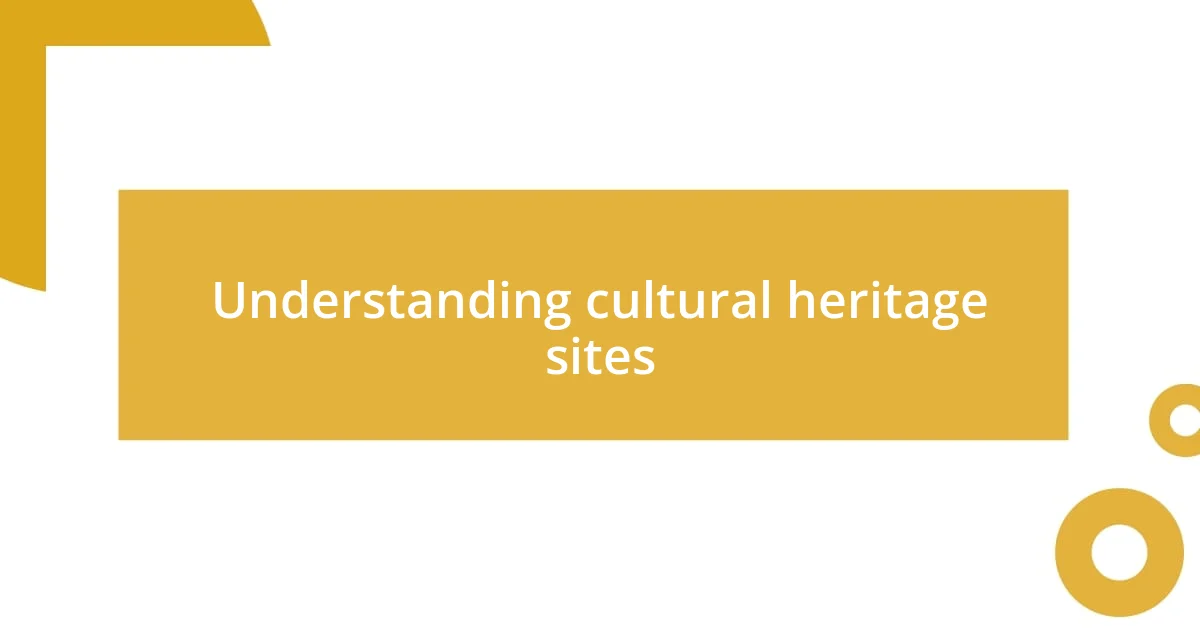
Understanding cultural heritage sites
Cultural heritage sites, in my experience, are not just locations marked on a map; they’re living narratives of our collective past. I remember walking through the ancient ruins of a Roman forum, feeling the echoes of conversations that once filled those stones. How incredible is it to stand where history unfolded? These sites are gateways to understanding the values, struggles, and triumphs of those who came before us.
When I reflect on my visits to various heritage sites, I often think about the personal connections we forge with the stories they hold. Each site tells a story that resonates differently with everyone. For instance, standing in a centuries-old temple, I was struck by a profound sense of peace; it’s almost as if the emotions and prayers of countless individuals had woven themselves into the very air. Have you ever felt a deep connection at a place steeped in history? Those moments stick with us, enriching our understanding of humanity.
Delving into the history of cultural heritage sites enriches our perspective, revealing the intricate tapestry of human existence. I often find myself pondering how these sites, through architecture or artifacts, encapsulate the essence of a culture. It’s fascinating to think about how we can learn from both the triumphs and the mistakes of past civilizations through their preserved legacy. Wouldn’t you agree that exploring these tangible pieces of history allows us to transcend time and connect with our shared human experience?
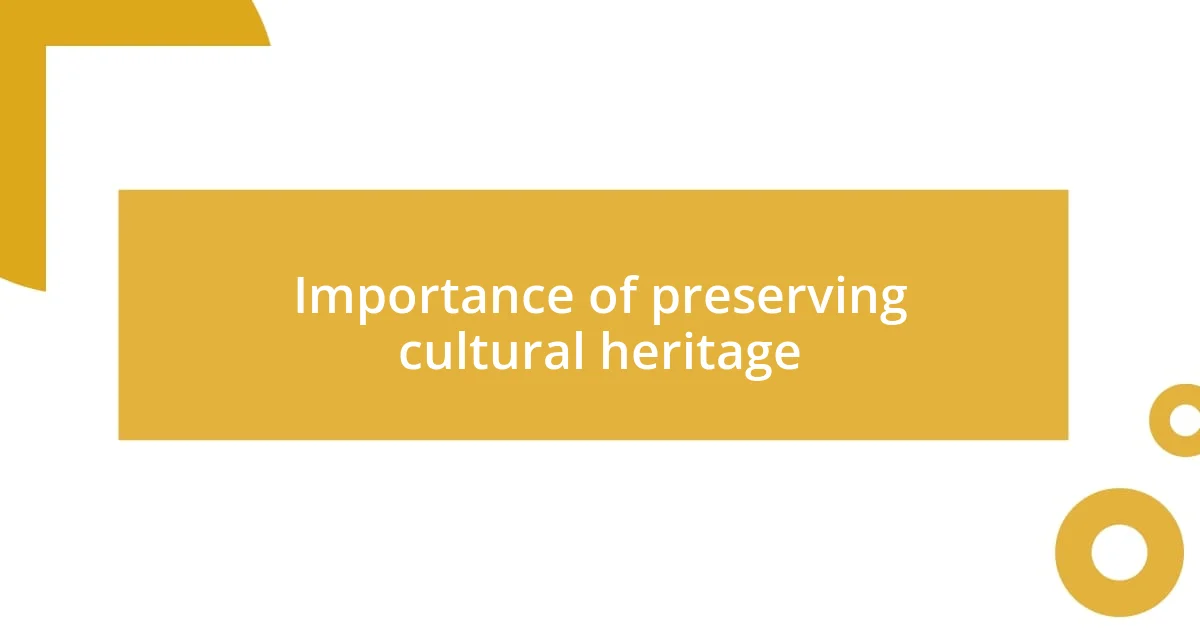
Importance of preserving cultural heritage
Preserving cultural heritage is crucial because it helps maintain our identities and fosters a sense of belonging. When I visited a folk museum in my hometown, the vibrant displays of local crafts connected me to my roots. It was a reminder of the traditions my grandparents practiced, bridging the gap between past and present. Have you ever experienced the warmth of familiarity in a place steeped in your culture? That bond is something worth protecting.
Moreover, cultural heritage sites serve as educational resources, enlightening future generations about their history. I recall my first school trip to a historic battlefield; the stories shared by our guide transformed dry facts into vivid tales of bravery. Engaging with such sites instilled in me a deep appreciation for the sacrifices made by those before us. Isn’t there something empowering about learning from our past? It motivates us to uphold those lessons in our current lives.
Finally, preserving our cultural heritage sites also contributes to economic sustainability by promoting tourism. I remember visiting a restored castle that was bustling with visitors, all eager to witness its grandeur. The local community thrived on the influx of tourists, creating jobs and supporting local businesses. It’s incredible how these sites not only protect history but also fuel growth and prosperity for our communities. Can you see how cultural heritage is a treasure that brings both value and vitality to our societies?
| Importance of Preservation | Emotional Impact |
|---|---|
| Identity and Belonging | Strengthens personal connections through tradition |
| Educational Resource | Teaches critical lessons from the past |
| Economic Benefits | Promotes community growth and sustainability |
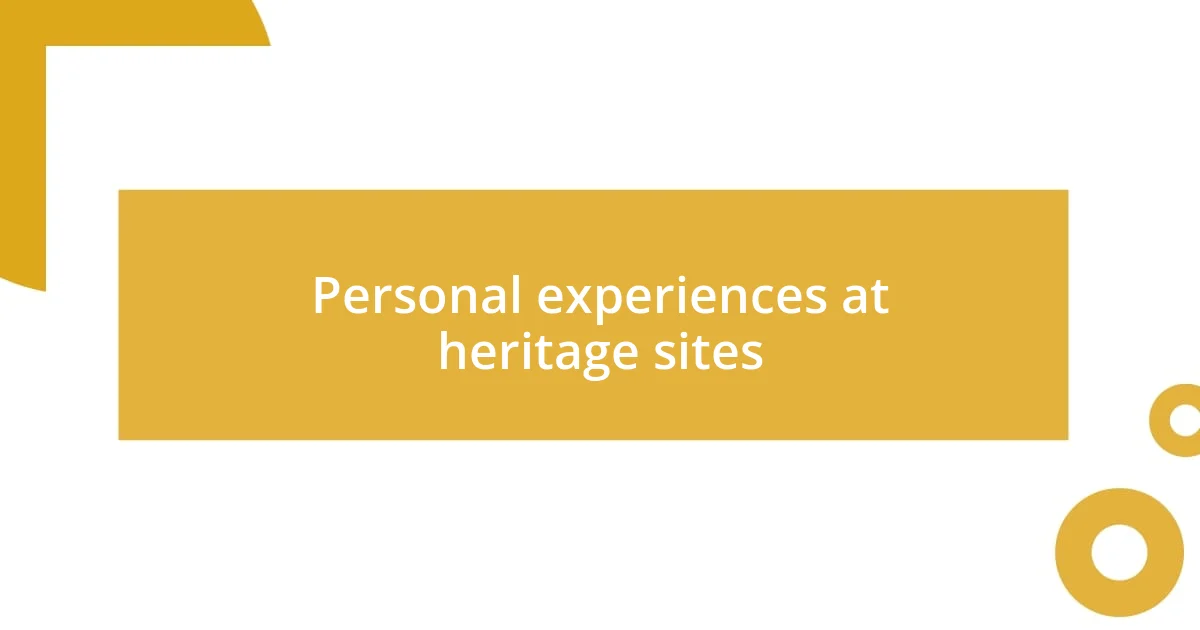
Personal experiences at heritage sites
Visiting cultural heritage sites has profoundly shaped my understanding of history and identity. One specific experience that stands out is when I explored the intricate carvings of an ancient temple in Southeast Asia. I felt a wave of emotion wash over me, realizing that each detail told a story of devotion and culture, lingering in the air long after the last prayer was uttered. It was a humbling moment that made me appreciate the depth of human expression across time.
- Witnessing centuries-old traditions revived through local festivals at heritage sites.
- Feeling part of a global family, united by shared narratives within these spaces.
- The thrill of discovering an unexpected connection with my own ancestry while standing on hallowed ground.
On a different occasion, I found myself at a historic lighthouse, where the salty sea breeze mingled with the stories of brave sailors. It wasn’t just the architecture that captivated me, but the knowledge that generations had looked to that beacon for hope and guidance. I couldn’t help but close my eyes and imagine the fears and triumphs of those navigating the storms, which brought an entirely new perspective to the significance of such places.
- The joy of meeting locals who passionately share their heritage and personal stories.
- Participating in a traditional ceremony that felt like stepping into a living history book.
- Emotions that surged as I stood beneath the stars, reflecting on how the very earth had witnessed centuries unfold.
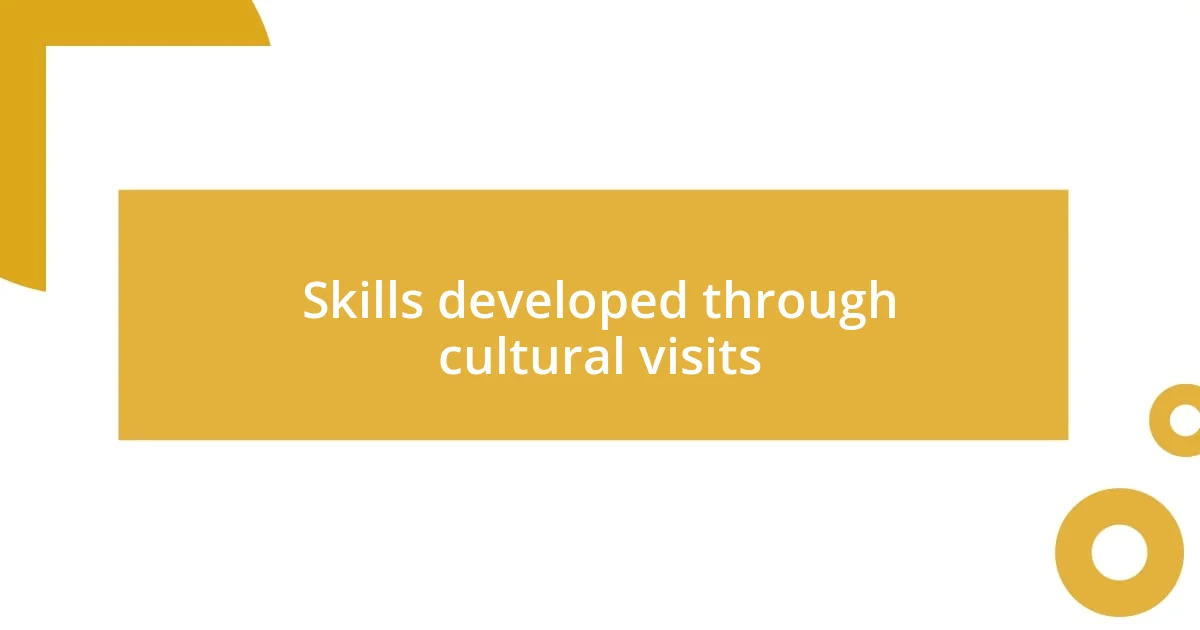
Skills developed through cultural visits
Cultural visits have not only broadened my horizons but also helped me develop a variety of crucial skills. When attending interactive workshops at a local art center, I discovered a newfound appreciation for craftsmanship. Tinkering with my hands to create something tangible taught me patience and problem-solving, essential skills that spill over into daily life. Have you ever felt that satisfaction of creating something with your own hands? It’s a rewarding experience that nourishes creativity.
On another occasion, I found myself immersed in a traditional cooking class during a cultural festival. Navigating the unfamiliar spices and techniques not only enhanced my culinary abilities but also honed my ability to work collaboratively with others. It was fascinating to watch how we all, despite our different backgrounds, came together to learn and share the joy of food. Isn’t it amazing how food can unite us, fostering teamwork and communication?
Moreover, visiting historical sites has significantly sharpened my analytical skills. While exploring an ancient fort, I became engrossed in understanding its architecture and strategic significance. Asking questions, like “Why was this layout chosen?” or “What does this tell us about the culture of that time?” encouraged me to think critically. Each visit becomes an opportunity to dig deeper, turning observation into insight. How often do we allow ourselves to ponder the layers of meaning behind what we see? These skills not only enrich our experiences but also encourage us to engage more fully with the world around us.
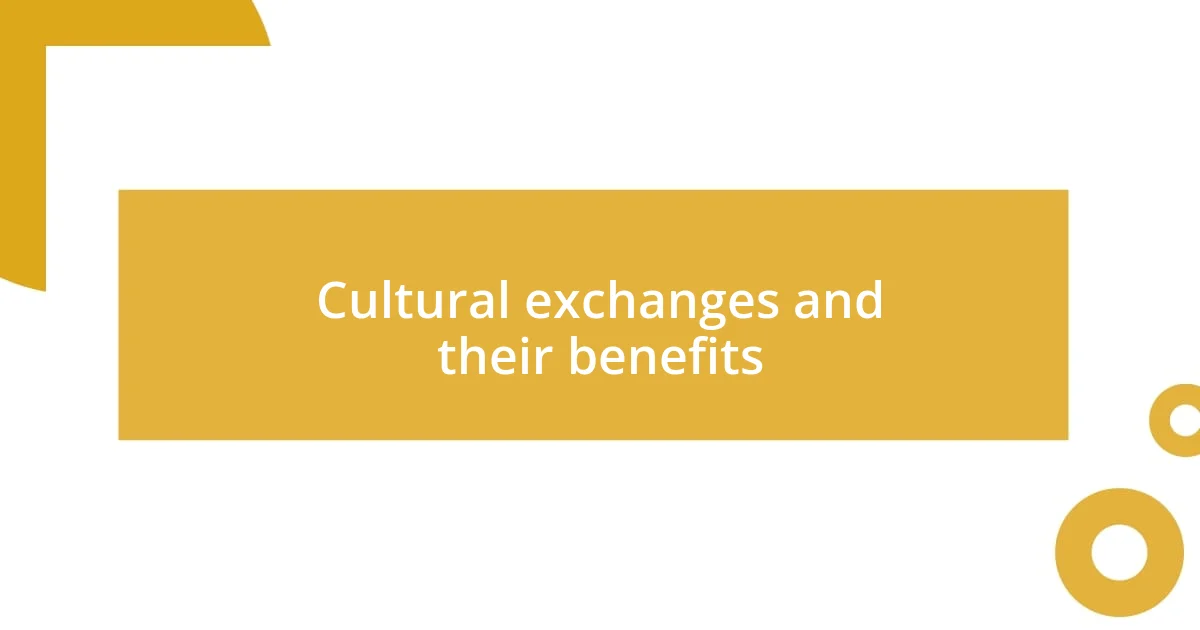
Cultural exchanges and their benefits
Cultural exchanges have always fascinated me, particularly how they create connections between people from diverse backgrounds. I remember attending a vibrant festival where local artisans showcased their crafts. As I engaged with them, I felt a warm sense of kinship. Listening to their stories, I realized that despite our different cultures, we shared similar dreams and aspirations. Isn’t it awe-inspiring how these exchanges bring us closer, reminding us of our shared humanity?
One memorable instance of cultural exchange took place in a small village during a home-stay experience. The family I stayed with welcomed me with open arms, and we spent evenings sharing traditional meals and stories. I still think about the unique flavors and how they were infused with history and tradition. It’s incredible how food can serve as a bridge, allowing us to experience the essence of another culture. Don’t you think it’s heartwarming how a simple meal can foster understanding and connection?
Additionally, I once participated in a dance workshop that celebrated a culture vastly different from my own. Each movement told a story deeply rooted in tradition. Learning those steps became more than just physical activity; it was an emotional journey that connected me to the dancers and their heritage. Reflecting on that experience, I’m struck by how cultural exchanges not only enrich our lives but also nurture an appreciation for the richness of human creativity. Have you ever felt that spark of joy when you realize you are part of something much larger than yourself?
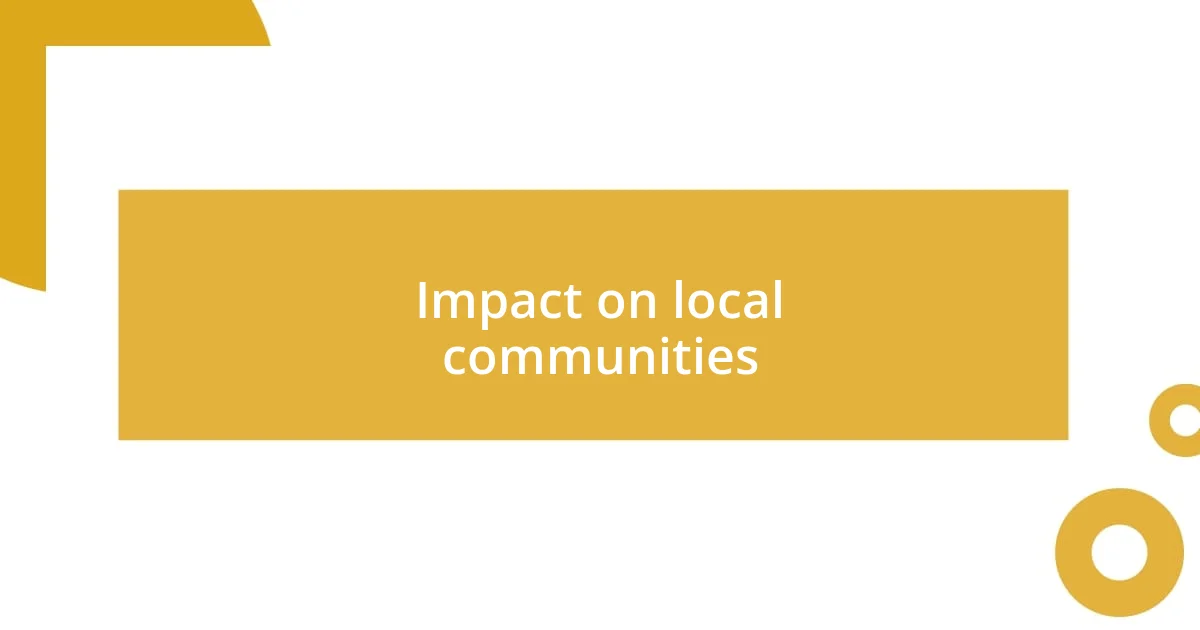
Impact on local communities
The impact of cultural heritage sites on local communities can be profound. I remember visiting a small coastal town where a historic lighthouse served as a community focal point. This site not only attracted tourists but also sparked local pride. Residents would often gather for maintenance days, reinforcing a sense of belonging and shared responsibility for their heritage. Isn’t it remarkable how a structure can cultivate community spirit?
In another instance, I had the pleasure of joining a local artisan workshop near an ancient temple. The artisans shared their skills with eager learners, and I noticed how these interactions sparked economic opportunities. It was encouraging to see how the community thrived by selling handmade crafts to visitors. Can you imagine the transformation when creativity merges with commerce, breathing new life into traditions?
Furthermore, I observed how cultural festivals featuring local heritage sites foster an incredible sense of unity. At one festival, I witnessed various generations come together, sharing stories and experiences that highlighted their mutual history. It was heartwarming to see children learning dances of their ancestors while elders smiled proudly. This interplay between past and present strengthens community bonds. How often do we witness such moments that weave together the fabric of a community’s identity?
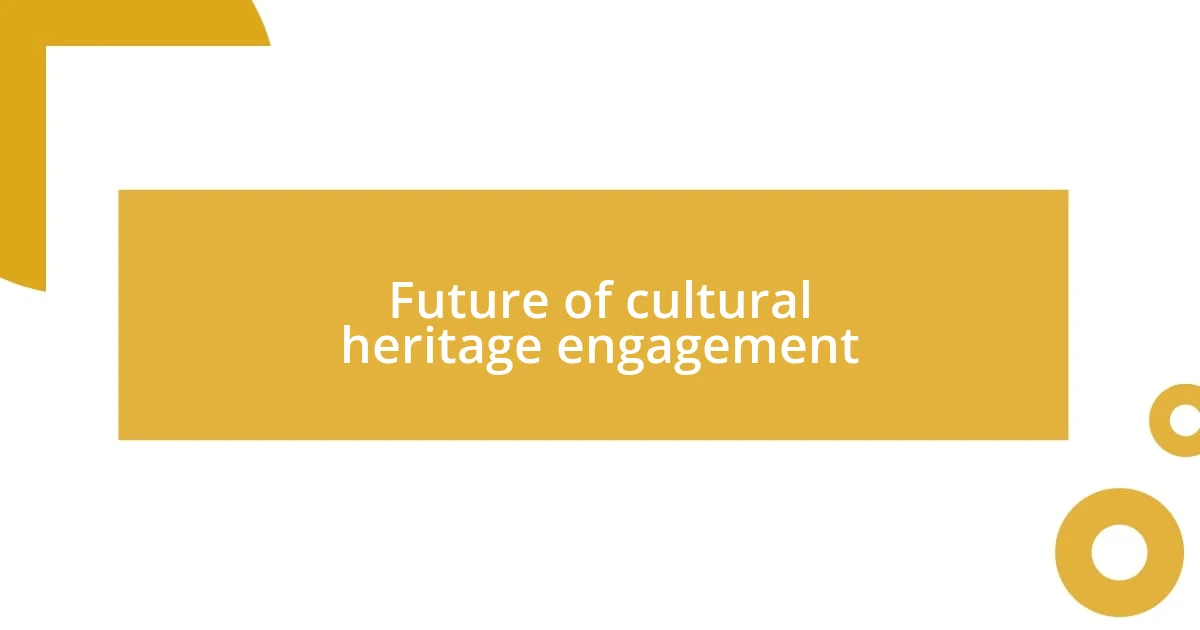
Future of cultural heritage engagement
The future of cultural heritage engagement is likely to be characterized by technology’s increasing role in preserving and sharing these rich narratives. I fondly recall visiting a virtual reality exhibition that transported me to ancient ruins I had never believed I’d see in person. How exciting is it that technology can breathe new life into heritage sites, allowing people to experience them from anywhere in the world? This innovation not only makes cultural education more accessible but also fosters a deeper emotional connection to our shared history.
Looking ahead, I can envision community-driven initiatives that empower local voices to take center stage in heritage management. For instance, in a recent workshop, I interacted with locals who were eager to share their untold stories about an old castle. Isn’t it thrilling to imagine how engaging communities in stewardship will not only preserve traditions but also amplify their significance? This participatory approach will likely lead to more authentic experiences for visitors, intertwining generations in a meaningful dialogue rooted in their cultural identities.
Moreover, I believe that collaborations between cultures will flourish as globalization continues to reshape our interactions. I remember being part of an intercultural project that blended music from various backgrounds, creating a stunning tapestry of sound. How beautiful it is when diverse cultural expressions unite? As we move forward, celebrating this interconnectedness could foster greater appreciation for the varieties of human experience, transcending borders and enriching us all.




